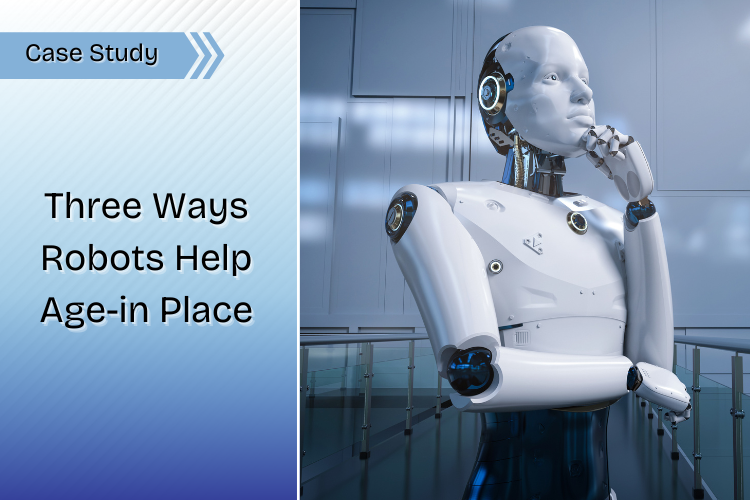By 2030, one in six people in the world will be aged 60 years or over—many of whom will be aging in place or living at their own home. Technologies like robots and AI (artificial intelligence) can help enable people to live safely in their homes longer than before.
Let’s consider a few examples. Research out of Chiba University Graduate School of Nursing suggests robots and AI (artificial intelligence) are both critical to caregiving—especially as a shortage of skilled workers continues to rise up.
Here is how this can help:
- Age in the comfort of their own homes.
- Minimize strain on resource-strapped industries.
- Keep a closer eye on health, allowing people to live longer lives.
Still, there is one big hurdle standing in the way. Do people really want robots caring for them? The university study conducted a questionnaire for caregivers across Japan, Ireland, and Finland, looking at four different aspects of users’ willingness including: familiarity with robots, important points about robots, functions expected, and ethically acceptable uses.
Those in Japan highlighted the importance of convenience; those in Ireland highlighted the importance notifying family members and support personnel when an unexpected change occurs; and those in Finland highlighted the importance of design. All in all, most were willing to participate in research and development and had a positive impression and interest in with the development of aging-in place type robots.
View this story on LinkedIn.


